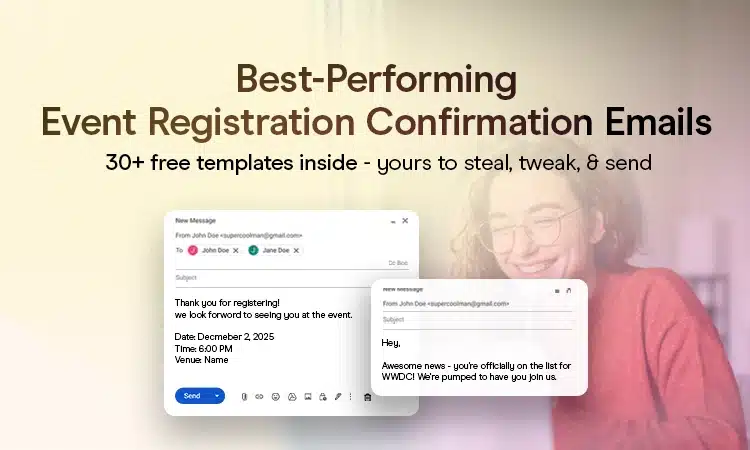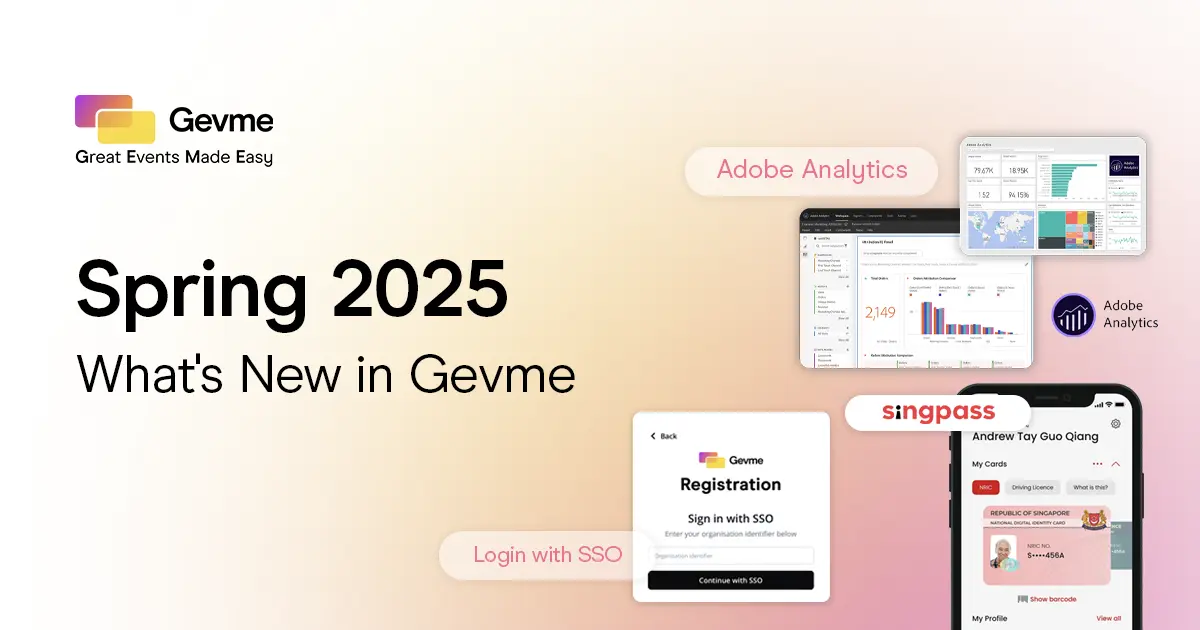In the evolving landscape of event management, hybrid events—those that blend in-person and virtual experiences—have become increasingly prevalent. A recent survey indicates that 68% of event marketers view hybrid events as a way to simultaneously engage both in-person and virtual audiences.
The New Expectations from Hybrid Attendees
Hybrid events cater to two distinct attendee groups: those participating in person and those joining virtually. Each group has unique expectations and requirements, making it imperative for event organizers to tailor their hybrid event registration processes accordingly.
In-Person Attendees
Individuals attending physically often seek:
- Networking Opportunities: Face-to-face interactions remain a primary draw, facilitating spontaneous discussions and relationship-building.
- Tangible Experiences: Engaging with exhibits, participating in hands-on workshops, and enjoying the ambiance of the venue contribute to the overall experience.
- On-Site Amenities: Access to refreshments, comfortable seating, and other facilities enhances comfort during the event.
Virtual Attendees
Conversely, virtual participants prioritize:
- Seamless Digital Access: A user-friendly platform that allows easy navigation and participation is crucial.
- Interactive Features: Elements such as live Q&A sessions, polls, and chat functionalities foster engagement.
- Content Accessibility: On-demand sessions and downloadable materials enable attendees to engage at their convenience.
Recognizing these differing expectations is vital. A one-size-fits-all approach to hybrid event registration can lead to dissatisfaction among both groups. For instance, virtual attendees might find questions about dietary restrictions irrelevant, while in-person attendees could be confused by inquiries about preferred streaming quality. Tailoring the registration process to address these specific needs ensures a smoother experience for all participants.
Where Traditional Registration Falls Short
Traditional registration methods often fail to accommodate the complexities of hybrid events, leading to several challenges:
- Unified Forms Leading to Irrelevant Fields
Using a single registration form for all attendees can result in irrelevant questions, diminishing the user experience. For example, asking virtual attendees about on-site meal preferences is unnecessary. - Confusing or Unclear Communication
Without clear distinctions between virtual and in-person attendance options, attendees may be uncertain about what they’re signing up for, leading to potential dissatisfaction. - Lack of Ticketing Variety
Offering only one type of ticket fails to accommodate the varied needs of hybrid event attendees, limiting accessibility and potential attendance. - Disconnected Tools and Siloed Data
Separating registration data for virtual and in-person attendees can hinder comprehensive analysis and personalized engagement strategies.
Smarter Hybrid Event Registration Strategies
To effectively address the challenges inherent in hybrid event registration, event organizers can implement several strategic approaches:
- Segmented Registration Paths
Developing distinct registration processes for virtual and in-person attendees ensures that each group’s specific needs are met. This customization enhances the user experience by presenting relevant options and information tailored to each attendee type. For instance, virtual attendees might be offered choices related to digital platform preferences, while in-person participants could select on-site amenities.
This approach not only streamlines the registration process but also demonstrates an understanding of the unique requirements of different attendee groups. By addressing these needs upfront, organizers can reduce confusion and increase satisfaction among participants. - Tiered Ticketing and Pricing Models
Implementing flexible ticketing options with varying price points allows attendees to choose packages that best suit their preferences and budgets. For example, offering basic access for virtual attendees and premium packages for in-person participants provides clear value propositions for each segment.
This strategy not only caters to diverse attendee needs but also maximizes revenue potential by appealing to a broader audience. By clearly outlining the benefits associated with each ticket type, organizers can help attendees make informed decisions that align with their expectations. - Conditional Logic in Forms
Utilizing registration forms with conditional logic ensures that attendees are presented with questions and options relevant to their chosen participation mode. For instance, virtual attendees might be asked about preferred streaming times, while in-person participants could provide dietary preferences.
This targeted approach simplifies the registration process, reduces unnecessary data collection, and enhances the overall user experience. By tailoring the form fields to each attendee’s context, organizers can gather pertinent information without overwhelming participants. - Real-Time Integration with CRM, Email, and Analytics Tools
Integrating registration platforms with Customer Relationship Management (CRM) systems, email marketing tools, and analytics software enables seamless data flow and communication. This integration facilitates personalized engagement, timely updates, and comprehensive tracking of attendee interactions.
For example, automated confirmation emails can be customized based on the attendee’s registration type, and CRM integration allows for targeted follow-up communications. Analytics tools provide insights into registration trends and attendee behavior, informing future event strategies.
By adopting these strategies, event organizers can create a more efficient and attendee-centric registration process, ultimately enhancing the overall success of hybrid events.
Real-World Examples & Expert Insights
Implementing effective hybrid event registration strategies has led to notable successes across various organizations. Below are some real-world examples and expert insights that highlight the benefits of these approaches:
- Case Study: IEEE 5G Workshop on First Responder and Tactical Networks
In December 2021, IEEE hosted a virtual workshop focusing on the applicability of 5G technologies for first responders and tactical networks. The event successfully brought together professionals to explore solutions, share use cases, and discuss research opportunities and challenges. - Expert Insight: The Rise and Impact of Hybrid Events
According to insights from CrowdComms, hybrid events utilize technology to connect onsite and remote attendees, offering flexibility and broader reach. This approach allows organizers to expand their audience and provide diverse participation options. - Industry Statistic: Positive ROI from Hybrid Events
A report by Markletic reveals that 86% of B2B organizations see a positive return on investment (ROI) from hybrid events within seven months post-event. This statistic underscores the financial viability and effectiveness of hybrid events when executed with well-planned registration strategies.
These examples and insights demonstrate that thoughtful planning and implementation of hybrid event registration strategies can lead to increased attendance, enhanced attendee satisfaction, and a positive return on investment.
The Long-Term Shift in Hybrid Event Strategies
The landscape of event management is undergoing a profound transformation, with hybrid events—those that blend physical and digital experiences—becoming a mainstay. This shift necessitates a reevaluation of traditional event strategies to accommodate the evolving preferences of attendees and the technological advancements shaping the industry.
The Enduring Presence of Hybrid Events
Hybrid events have transitioned from being a temporary solution during global disruptions to a permanent fixture in the event industry. A report by Businesswire projects that the global events industry will reach approximately $1.76 trillion by 2029, with hybrid events playing a significant role in this growth. This enduring presence is attributed to several factors:
- Global Accessibility: Hybrid events eliminate geographical barriers, allowing attendees from around the world to participate without the constraints of travel.
- Flexibility: Offering both in-person and virtual attendance options caters to diverse preferences, enhancing overall attendee satisfaction.
- Cost-Effectiveness: Organizations can optimize resources by reaching a broader audience without proportionally increasing expenditures.
Evolving Registration Strategies
As hybrid events become the norm, registration strategies must evolve to meet the unique demands of this format:
- Personalization: Tailoring the registration experience to individual preferences enhances engagement. Implementing AI-driven personalization can recommend sessions and networking opportunities based on attendee interests, creating a more customized experience.
- Integrated Platforms: Utilizing unified platforms that manage both virtual and in-person registrations streamlines processes and ensures a cohesive experience for all attendees.
- Enhanced Communication: Clear and targeted communication strategies are essential to inform attendees about the specifics of their chosen participation mode, reducing confusion and enhancing satisfaction.
The Role of Technology in Shaping Future Strategies
Advancements in technology are pivotal in the evolution of hybrid event strategies:
- Artificial Intelligence (AI): AI is transforming event experiences by delivering unprecedented insights and engagement, allowing for more personalized and efficient interactions.
- Virtual and Augmented Reality (VR/AR): The integration of VR and AR technologies enhances the immersive experience of hybrid events, making virtual participation more engaging.
- Data Analytics: Leveraging data analytics enables organizers to gain deeper insights into attendee behavior, preferences, and engagement patterns, informing future event strategies.
How Platforms Like Gevme Help
Navigating the complexities of hybrid event registration requires robust and adaptable platforms. Gevme offers comprehensive solutions designed to address these challenges:
- Customizable Registration Forms: Gevme provides customizable forms that cater to both virtual and in-person attendees, ensuring relevant information is collected efficiently.
- Integrated Data Management: The platform seamlessly integrates with Customer Relationship Management (CRM) systems, email marketing tools, and analytics software, facilitating personalized engagement and comprehensive tracking.
- Hybrid Networking Features: Gevme bridges the gap between physical and digital attendees by offering features such as integrated meeting tools and recommendation engines that match attendees based on shared interests.
Final Takeaways
The shift towards hybrid events necessitates a reevaluation of registration strategies to ensure they are aligned with the evolving landscape. Key considerations include:
- Embracing Technological Advancements: Incorporating AI, VR/AR, and data analytics to enhance the registration process and overall attendee experience.
- Prioritizing Personalization: Tailoring the registration journey to individual preferences to boost engagement and satisfaction.
- Ensuring Integration: Utilizing platforms that offer seamless integration with various tools to streamline processes and provide a unified experience.
By adopting these strategies, event organizers can effectively navigate the complexities of hybrid events, delivering seamless and engaging experiences for all attendees.
Ready to Transform Your Event Registration?
Book a free demo with Gevme today!








